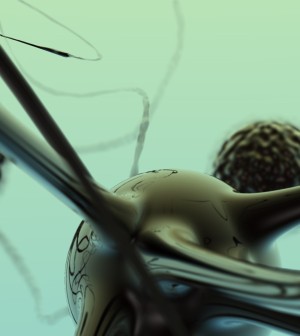- Could Artificial Sweeteners Be Aging the Brain Faster?
- Techniques for Soothing Your Nervous System
- Does the Water in Your House Smell Funny? Here’s Why
- Can a Daily Dose of Apple Cider Vinegar Actually Aid Weight Loss?
- 6 Health Beverages That Can Actually Spike Your Blood Sugar
- Treatment Options for Social Anxiety Disorder
- Understanding the Connection Between Anxiety and Depression
- How Daily Prunes Can Influence Cholesterol and Inflammation
- When to Take B12 for Better Absorption and Energy
- Epsom Salts: Health Benefits and Uses
Liquid Medical Marijuana Shows Promise Against Severe Epilepsy


A liquid form of medical marijuana may help people with severe epilepsy that does not respond to other treatments, according to a new report.
The study included 213 child and adult patients with 12 different types of severe epilepsy. Some of them had Dravet syndrome and Lennox-Gastaut syndrome, which are types of epilepsy that can cause intellectual disability and lifelong seizures.
The patients took a liquid form of medical marijuana, called cannabidiol, daily for 12 weeks.
Among the 137 people who completed the study, the number of seizures fell by an average of 54 percent, according to a team led by Dr. Orrin Devinsky, of New York University Langone Comprehensive Epilepsy Center in New York City.
Among the 23 patients with Dravet syndrome who completed the study, the number of convulsive seizures fell by 53 percent, the investigators found. The 11 patients with Lennox-Gastaut syndrome who finished the study also had a 55 percent decline in the number of attacks called “atonic” seizures, which cause a sudden loss of muscle tone.
The drug wasn’t always easy to take, however, and 12 patients stopped taking it due to side effects, the researchers said. The types of side effects seen in more than 10 percent of the patients included drowsiness (21 percent), diarrhea (17 percent), tiredness (17 percent) and decreased appetite (16 percent).
The study was supported by drug maker GW Pharmaceuticals. The findings are scheduled to be presented next week at the annual meeting of the American Academy of Neurology (AAN) in Washington, D.C. Experts note that findings presented at medical meetings are typically considered preliminary until published in a peer-reviewed journal
Devinsky agreed that larger, placebo-controlled studies are needed to assess the effectiveness of the drug.
“So far there have been few formal studies on this marijuana extract,” he said in an AAN news release. “These results are of great interest, especially for the children and their parents who have been searching for an answer for these debilitating seizures.”
One expert unconnected to the study called the findings “very exciting.”
“Prior to this study, there were mainly anecdotal reports and very few formal studies evaluating cannabidiol, a component of cannabis, in treating seizures,” explained Dr. Scott Stevens, director of Advanced Clinical Experience in Neurology at North-Shore-LIJ Health System in Manhasset, N.Y.
Stevens believes that “these results stand as a stepping stone toward further studies evaluating the use of marijuana in the treatment of epilepsy.”
More information
The American Academy of Family Physicians has more about epilepsy.
Source: HealthDay
Copyright © 2026 HealthDay. All rights reserved.










